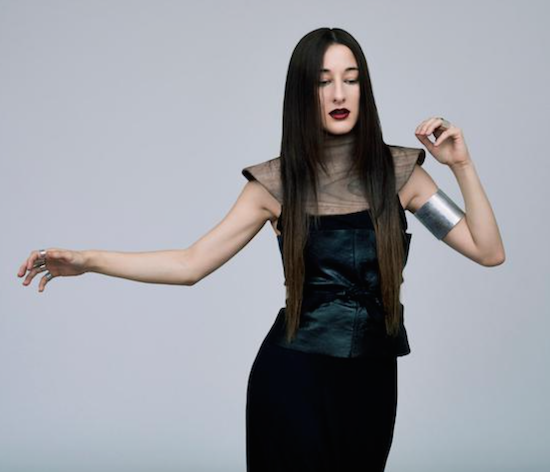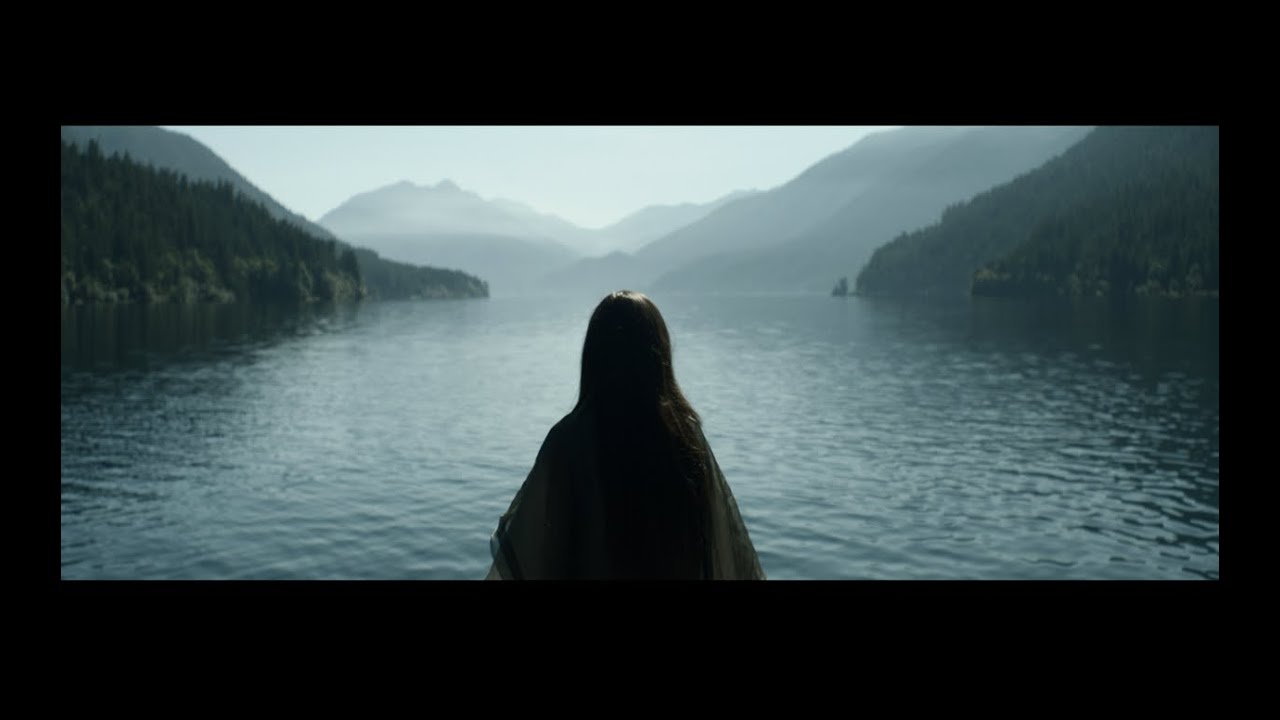Nika Rosa Danilova is only 26, but she’s already on her fifth album and ready for a new musical direction. Taiga, released under her Zola Jesus moniker in back in October, embraces a buoyant pop sound the likes of which is more reminiscent of Lykke Li or Austra than old comparisons to Siouxsie and the associated bleak post-punk of the era.
Something certainly has lifted, and it’s not just Danilova’s previously reverb-drenched vocals in favour of her unprocessed voice. The arrangements are airier, there’s no sense of claustrophobia, and the synths enhance the shiny, polished pop angles of the tunes until they gleam.
Danilova has always written pop songs, but this space, and the maturity that goes with it, suits her surprisingly well. I was always a fan of the darker stuff, and I loved her ability to almost conceal melodies among effects and drama. There’s still drama here, but there’s so much more room to breathe, too.
Her worldview has widened as well. Of course, she has always favoured atmosphere and impression over incisive commentary in her songwriting. But Taiga has more words about hope, truth, and chasing after what you believe in than of consuming apprehension and doubt. Danilova’s expansive style means the lyrics take a backseat to the melodies and arrangements, but these songs just feel like they can’t be about anything less than the struggle for freedom and expression.
Was your change of artistic direction for Taiga a conscious change or did it happen more organically?
Nika Rosa Danilova: It’s not something I really thought about, so I guess it was more organic.
Prior to making the record, I spent every day for a year sitting down at a piano and singing. I would sing for hours and hours. No production, no microphone, nothing. It felt very primal. Through that experience, I started singing differently and writing differently. By the time I wrote the record, it was second nature. I had pried open the oyster, let go of the tension, and was able to create music outside the throat.
What’s your relationship to more straight-ahead pop music? You’ve worked with noise, classical, electronic, and industrial sounds before, but you’ve never sounded more accessible than on Taiga – what kinds of pop are you inspired by?
NRD: Good pop songs could last through eras, decades, wars, famine, triumphs. They could have been written 50 years ago, yet today you could put it on and feel like an old friend is there in your ear — giving you some sort of solace through the ever-changing, shapeshifting world. Pop songs are inherently emotional. They’re created to calm you, excite you, comfort you, incite you and they have the power to infect an entire population. Best of all, pop music is succinct. Emotion can be complicated, but pop puts it all on this flat surface. Everything — all the shades of life and death are distilled into a digestible structure.
Is playing live significantly different now that you rely more on live instrumentation than you have on previous albums/tours?
NRD: Honestly, it’s hard to understand what’s different on stage now. But something has changed. Maybe it’s because the new songs demand a new type of performance. The stage now feels less like a trap, and more like a public exorcism. Technically, there’s just so much more effort than ever before. There’s more margin for error, more confrontation, and I’m at the mercy of the people in
front of me because now I’m actually looking them in the eyes.
What’s the role or influence of place on your music? I understand you’ve moved around the States a lot, including to the remote Pacific Northwest – how does that impact your sound and/or subject matter?
NRD: Music isn’t made in a vacuum. It’s made in the world, and listened to in the world so the environment is constantly alive in the music. I’m extremely sensitive to my environment, maybe for this reason. My music will change based on where I am when I made it, because music reacts to its surroundings. Sometimes it’s a raw deal to be a musician, because you’re expected to create something completely out of context to the environment, and you have no control over the place in
which it’s being experienced by the user. I wish you could make music in a specific place, and it could be experienced only there. Because so much of the context of music is based on the environment in which it was created. That’s why I love film music so much, because it is given the opportunity to exist in a very controlled environment, and you’re given all the sensory parameters. It’s so much more holistic that way. But it’s a fun challenge as a musician to try to communicate an
entire multi-sensory world through just audio.
A lot of your music has strong industrial and gothic elements to it, maybe less so on Taiga than on previous albums. You’ve talked about your musical and literary influences before, but does visual art influence your work too?
NRD: Visual art certainly is the biggest influence on my work. Mostly architecture. I love looking at buildings and trying to create a song that would exist within the structure. I’m very inspired by Frank Lloyd Wright, Tom Kundig, George Suyama, Tadao Ando, Louis Khan. I also love sculpture art. I’ll look at a Richard Serra or Donald Judd sculpture, and wonder what sound it would make. I also love film because it is, in my opinion, the most advanced art form. It takes literary, visual, and audio sensory and puts it all together into one massive work. That’s what I love about directors like Andrei Tarkovsky, Hiroshi Teshigahara, and Peter Greenaway – they use every aspect of the film to communicate an idea so much larger than the disparate parts.
How does your visual presentation – your use of black and white clothing and modern, sometimes futuristic styles – relate to your music?
NRD: Again, it’s all a part of the holistic representation of the music. What does
the music sound like? What does it look like? How could you wear the music? This
is all happening organically. The music comes from within, and so does the
impulse to represent it visually. The things I’m drawn to aesthetically are
connected in this giant web. It’s innate, you know, and I don’t really think about it.
But it’s all coming from the same muscle.
What’s next for you?
NRD: Tour. I’m not done with Taiga. I still wake up in a sweat every day trying to
understand the record and I’m still trying to figure out how to explain the idea —
not only to myself, but to the public. I’ve been writing a little bit, but it all still feels
like Taiga. I’m starting to realise, you can’t choose when you’re done with
something, or why it’s even there in the first place. You can only chase the thread.
Zola Jesus is currently on a North American tour. She plays Latitude Festival in Suffolk in July.



